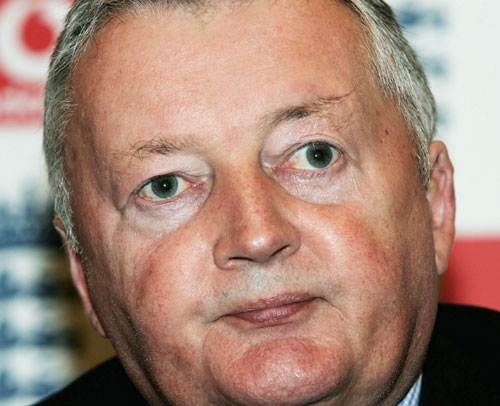Morgan set to become ICC president
David Morgan, the chairman of the England & Wales Cricket Board, is set to be named as the next president of the ICC, and will take over from Ray Mali, the South African acting president next year
|
|

|
David Morgan, the chairman of the England & Wales Cricket Board, is set to be named as the next president of the ICC, and will take over from Ray Mali, the South African acting president next year
|
|

|